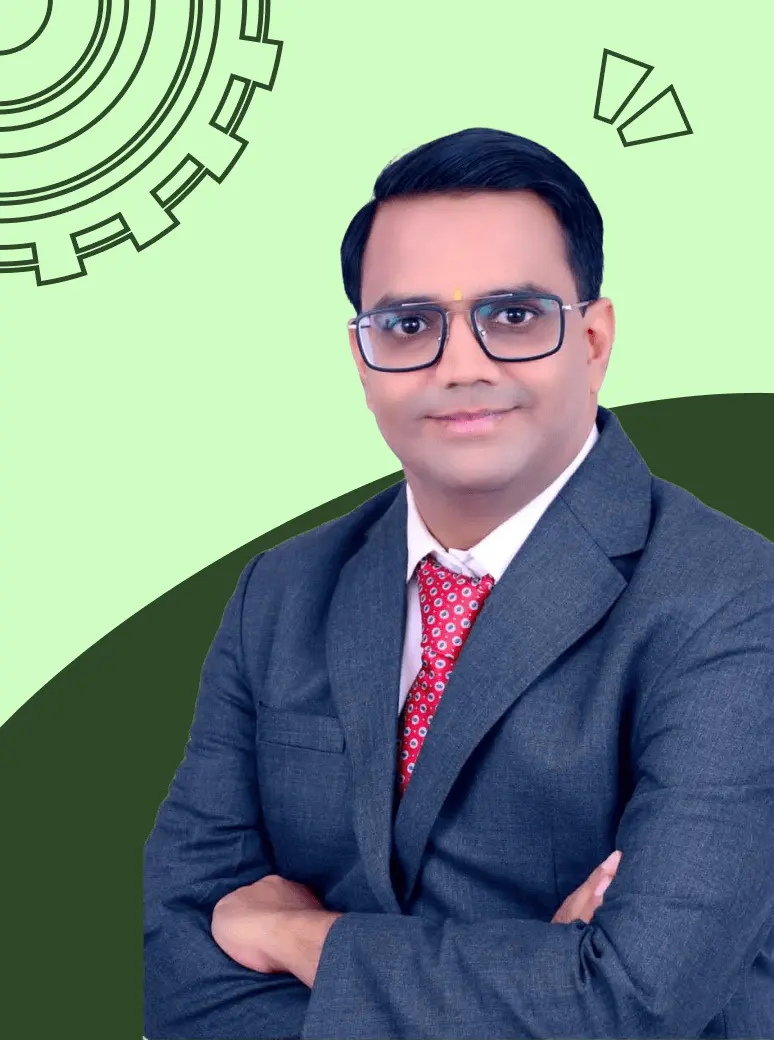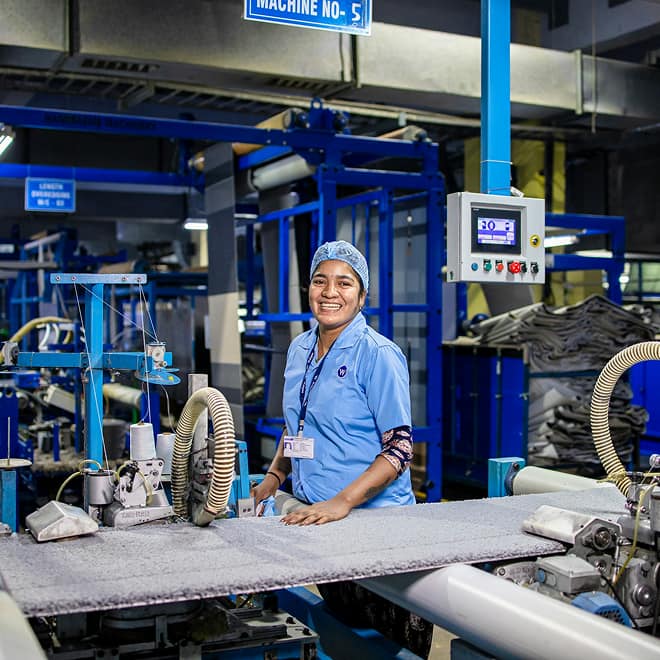The Future of Manufacturing — Rushikesh Kulkarni’s Curious Approach to Leadership

The Future of Manufacturing: Rushikesh Kulkarni's Curious Approach to Leadership
At the age of 14, Rushikesh Kulkarni experienced the profound loss of his father. While such a tragedy might cast a lifelong shadow for many, for Rushikesh, it ignited a powerful drive for continuous learning, curiosity, and resilience. Today, as the Vice President of R&D and Engineering at General Industrial Controls Pvt. Ltd. (GIC), he leads a team of over 150 engineers. He is instrumental in shaping the future of India’s manufacturing sector, bringing a unique blend of empathy, innovation, and grit to his role.
More than just a narrative of accolades or innovations, his story embodies a leadership philosophy centered on people. It reflects a technologist's vision for Manufacturing that integrates advanced methodologies and tools such as Agile and AI, and an unwavering conviction in the strength of perseverance.
A Trajectory of Unyielding Growth: From Bosch to GIC
Rushikesh's career journey exemplifies modern engineering leadership, marked by significant roles at Bosch, Honeywell, Whirlpool, Eaton, and GIC.
He achieved an extraordinary 600% team expansion, leading to numerous patent & disclosure filings and the creation of frameworks that assessed projects based on both business and innovation potential. A significant accomplishment was reducing the average project timeline from 16 to 11 months, clearly demonstrating his commitment to structured innovation and most importantly problem solving for the business.
Driven by a culture of innovation, Rushikesh developed an Innovation & IP framework from the ground up. This initiative encouraged teams to conceptualize beyond minor enhancements, leading to the first-time filing of software and firmware patents within the manufacturing sector. This achievement underscores his capacity to integrate visionary thinking with practical implementation.
A Human-Centric Leadership Philosophy
Rushikesh's approach is fundamentally centered on people, a principle that underpins all his technical accomplishments. He adheres to a straightforward yet profound belief: "Consider a person as a person, not as a resource."
Rushikesh prioritizes authenticity and human connection in an industry that often overemphasizes efficiency and utilization. He actively builds trust by genuine authenticity and care.
This individualized approach is a strategic element for growth. With over 150 engineers, he structures teams around product delivery rather than functions. He also develops "force multipliers" via a core team of five to six direct reports, holding monthly meetings to ensure bidirectional alignment and input.
This fosters not only efficiency but also a workplace culture that makes engineers feel heard, valued, and inspired.
The Synergy of AI, IoT, and Blockchain in Manufacturing
Rushikesh understands that AI is a transformative force in manufacturing, not merely an auxiliary tool. He believes it acts as both a disruptor and an enhancer, with the potential to increase productivity by 15 - 30% in critical domains.
He has successfully applied AI/ML to automate validation through vision-based sensing, leading to improvements in both speed and accuracy. However, he anticipates the most significant impact will be in supply chain and logistics management. Here, the integration of AI with blockchain for enhanced traceability and IoT sensors for comprehensive data collection is expected to deliver unprecedented levels of efficiency and transparency.
He offers a clear perspective: while software engineers are responsible for building algorithms, genuine innovation stems from comprehending the physical world of sensors that produce data. He contends that for the next generation of developers, a firm grasp of this convergence between hardware and software is absolutely essential.
Leading Gen Z Engineers
Rushikesh has closely studied how each generation shapes the workplace, with a particular focus on the distinctions exhibited by Gen Z engineers compared to previous generations.
“They’re clear on priorities and work-life boundaries,” he notes. In contrast to previous generations who might have habitually worked late, today's engineers intentionally seek balance. Crucially, their passion for particular goals, such as drones, platforms, or AI, is what motivates them.
To lead effectively, Rushikesh avoids imposing outdated structures. Instead, he prioritizes understanding individual motivations, tailoring communication for impact, and developing opportunities that align with personal interests. His approach emphasizes guidance over control.
Mentorship: Guiding the Next Generation of Entrepreneurs
Outside of his professional duties, Rushikesh is a passionate mentor. He provides active guidance to students and founders through platforms such as ISB’s I-Propel, Symbiosis’s Launchpad 30 Cohort, and ATAL Tinkering Labs, where he focuses on lean product development and entrepreneurial discipline.
Some of his recurring lessons:
- “Iterate to innovate.” Don’t chase perfection at the first try. Use MVPs, gather customer feedback, and refine.
- “CEO is about being engaged, not busy.” Leaders often confuse activity with impact. True leadership means focusing on what moves the needle.
- “Fail fast, learn fast.” Every failed experiment is just tuition for the next breakthrough.
He is especially candid with young founders who glamorize “smart work” at the expense of persistence. “Hard work is underrated, smart work is overrated,” he says. In his view, there is no substitute for persistence — the quiet, daily effort that compounds into success.
Insights for New Entrants in Manufacturing
For those considering careers in manufacturing, Rushikesh offers a pragmatic roadmap:
- Understanding the Physical World: The foundation of modern manufacturing lies in its sensors, machines, and data streams. The effectiveness of software is directly tied to the quality of the physical data it processes.
- Persistence is Key: In an era of immediate gratification and viral success, sustained effort offers a significant competitive edge.
- Bridging Theory and Practice: While classroom learning is invaluable, true adaptability is cultivated on the factory floor.
The Inspiration Behind His Story
Rushikesh Kulkarni’s story is not about overnight success or flashy unicorn valuations. It’s about something far more enduring: building with curiosity, empathy, and resilience.
From scaling teams six-fold to creating innovation culture in manufacturing industry, from pioneering AI adoption in design, development and testing to mentoring the next generation, his journey shows what it means to lead with both head and heart.
Leaders like Rushikesh demonstrate that manufacturing, often mischaracterized as an "old economy" sector, is not only thriving but also evolving. This transformation is driven by individuals who envision opportunities where others perceive constraints.
Final Thoughts
When asked for advice for a young engineer or early manager starting their career, Rushikesh's response isn't about trends or shortcuts. He simply offers this: "Work hard. Stay curious. Focus on Process. And remember — people are people, not resources."
It’s a simple philosophy, but in his hands, it’s also revolutionary. And it just might be the mindset that powers the next wave of India’s manufacturing future.
Recent Stories

At the Intersection of Engineering, Manufacturing, and India's growing HVAC/Built Environment sector: Nisha Anil Nair

Made in India, for the World: Pritesh Shah's Journey of Innovation, Resilience, and Purpose
